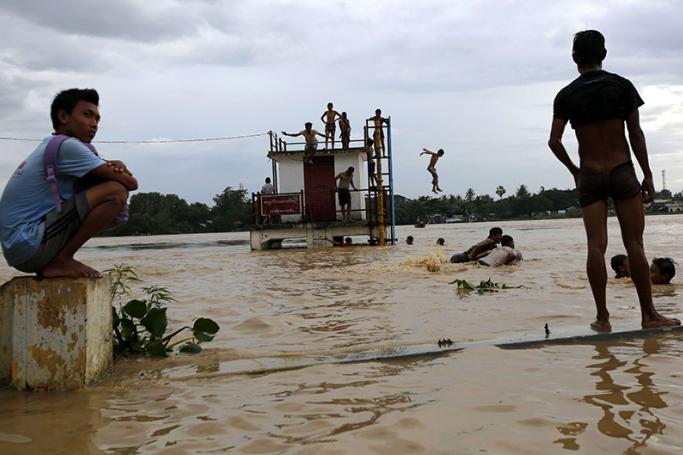Myanmar government is working towards the adoption of a national climate change policy, expecting to announce the launch of the policy soon.
The policy, formulated in collaboration with civil society, private sector and experts from across all sectors, will be launched along with a new national climate change strategy and action plan, President U Htin Kyaw disclosed at a ceremony celebrating the World Environment Day in Nay Pyi Taw on Monday.
The president encouraged Myanmar people to appreciate and help preserve the beauty of the country, one of the most ecologically diverse countries in Asia, urging people to take forward the call of the theme of the World Environment Day to connect with the nature.
World Environment Day is a United Nations-led annual event since 1972, aimed at bringing awareness to the destructive effects of natural resources extraction pollution and the need to protect biodiversity.
Myanmar is blessed with impressive landscapes that extend from the snow-capped mountains in the north to the southern coastal region of Tanintharyi. The variety of Myanmar's ecosystem is cherishable.
The country's terrains are home to over 18,000 species of plants, some 1,100 species of birds and almost 300 species of mammals. Of them, 61 species of plants and 44 species of mammals are globally classified as endangered or critically endangered species.
The species of Golden Deer and six species of bird in the global endangered species list can only be found in Myanmar.
Myanmar, a signatory to the Paris Climate Change Agreement, has voiced commitment to preserving and protecting the environment which includes combating the effects of global warming.
The government is working to conserve and protect its precious forest land, natural parks and wildlife sanctuaries.
However, Myanmar's many natural forests are being depleted at a rapid rate with air quality and fresh water resources being threatened.
In recent times, the country has experienced an unprecedented increase in temperature and extreme weather events more than ever before.
Some major storms struck the country in 2008 and as recently as a week ago, towns and villages in western Rakhine state were impacted by the powerful cyclone Mora.
Up to present, communities in Myanmar are still recovering from the impact of cyclone Nargis, the worst natural disaster in the country's history which occurred nearly a decade ago.
Courtesy Global Times
You are viewing the old site.
Please update your bookmark to https://eng.mizzima.com.
Mizzima Weekly Magazine Issue...
14 December 2023
Spring Revolution Daily News f...
13 December 2023
New UK Burma sanctions welcome...
13 December 2023
Spring Revolution Daily News f...
12 December 2023
Spring Revolution Daily News f...
11 December 2023
Spring Revolution Daily News f...
08 December 2023
Spring Revolution Daily News f...
07 December 2023
Diaspora journalists increasin...
07 December 2023
UNHCR chief appeals to Myanmar government to help IDPs, refugees












